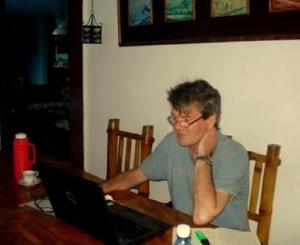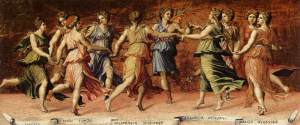I spent most of December in Cuba. Apart from the usual fun aspects, my intention was to read for a week, write a few blogs and get on with my novel. The first draft of the novel was complete. I had to go through it and tidy the whole thing up. I significantly changed the plot and finished the whole thing quite easily. I knew the end of the novel but couldn’t quite decide how to write it. With a few days left I decided to leave ending the novel until I got home.
Five weeks later I still haven’t finished it. I tinkered a little with the earlier chapters but have not even looked at the ending. For the first week, and then two, I thought it was just jet lag or being back at work, but work has been easy and jet lag only lasts a few days. It is very strange; I am forcing myself to write this, trying to get myself back in the mood, back in the writing mood. Writing is never easy, but sometimes it flows, and the writing I’ve done during the past year suddenly seems to have been very easy (it wasn’t), compared to now. How did I do it?
I have written one blog since Cuba, the one about an argument in the street and the heavy police response. It said something about crime in Havana, about crime in Cuba – I was pleased with it. Although it didn’t get much response, I thought it neatly summed up much about Cuba: the nature of their arguments, quickly over and forgotten, the temperament of the people and the fact that crime is almost non-existent. It was a short piece but I felt I could return to it in more detail, explain it more fully. But since then – nothing. Blocked.
Blocked. It’s over two weeks since I wrote anything and I have not even looked at my novel for three weeks. At first you look for excuses, but now I must admit that blocked is what it is. Writing this is like swimming through treacle or going into work with the flu – I really don’t want to do it. Norman Mailer described the difficulties well:
Writing every day is a depressing activity. Sometimes after two hours of writing I feel as if I’ve done seven hours of manual labour.
Of course Norman Mailer is referring to the general difficulty of writing, not being blocked. He was an incredibly industrious writer and didn’t always find it so hard. Throughout his life though, despite enormous success, he had to keep working, mainly to pay for his five ex-wives and his numerous children.
Writing this does feel like seven hours of manual labour, but I feel that I must get back into it, and perhaps writing about being blocked is as good a way as any of removing the block. And as Norman Mailer put it:
One must be able to do a good day’s work on a bad day, and indeed, that is a badge of honour decent professionals are entitled to wear.
I feel I have had too many bad days (in terms of writing) and must, if I want to be a writer, continue, even though it is the last thing I want to do. I still want to earn that ‘badge of honour’ that Mailer neatly applies to professionals – you simply must be willing to work on a bad day.
Life is fine apart from the writing. Most things are going quite well. It is at times like this that one echoes Hemingway, when one would rather be anything but a writer, when any other occupation or pastime seems enormously attractive:
I would rather have a good life than be a bloody great writer.
There is a strong temptation to feel like this, that any occupation is better. Hemingway managed to make his life startlingly unhappy, but as he said about his friend F Scott Fitzgerald:
Scott took literature so seriously. He never understood that it was just writing as well as you can and finishing what you start.
And Hemingway’s unhappiness was more to do with his personal life than his writing. He ruined his talent and lost his friends. Writing gave him the means to be happy; his character made him unhappy, and probably would have made him unhappy whatever he’d done.
I haven’t returned to my novel for a long time. I’m not sure why that is: if I think it isn’t good enough or if I think it is good but am nervous of the reaction – I really don’t know.
Writing was not always a chore for Norman Mailer. When he was working on a book his routine, which he kept to, was seven hours of writing a day, at least four days of the week. And it wasn’t all suffering; on some days he was:
…manic, alive, filled every day with the excitement and revelation of everything I see.
He apparently always had an aura ‘that projected a love of life’; one of his admirers said she was:
…amazed to see how jolly Mailer was; most of the writers she knew were anxious and unhappy.
I suppose I would like to follow the Mailer model, not exactly, but certainly in his love of life. Too many writers are miserable, see everything as an unpleasant task and write negatively about life. I may be blocked, but I’ve started again with this, poor as it may be. I will get to my novel again soon and finish it. Who knows what the response will be. I hope it’s good, but if it isn’t, well at least I will have completed it. And there’s plenty more where it came from. Well, there will be, just as soon as I rid myself of this writer’s block.
And ultimately I know there is only one way to do it. As GK Chesterton said:
“Apply the seat of the pants to chair and remain there until it’s finished.”






